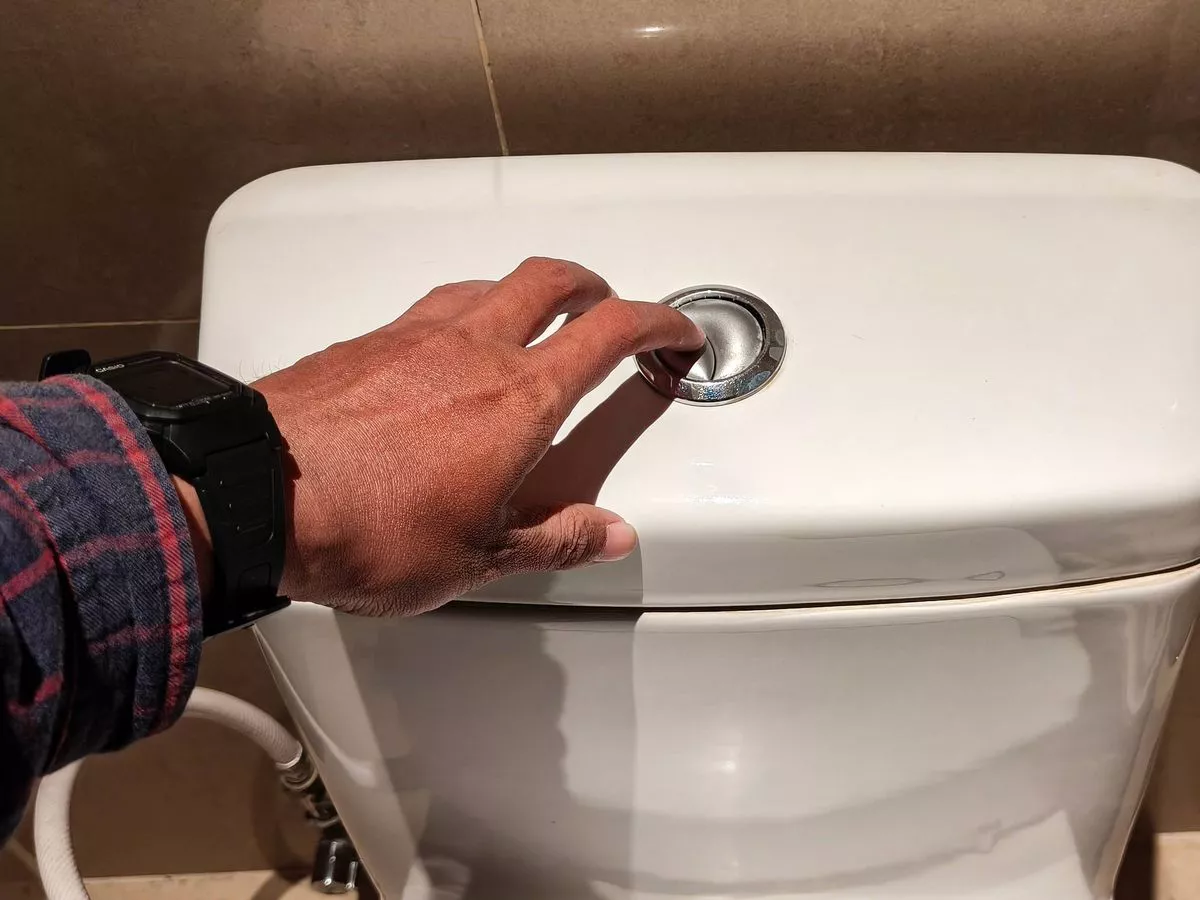Copyright dailyrecord

While many take great satisfaction in keeping their bathrooms sparkling clean, a common cleaning habit could be jeopardising your health . It might come as a shock that everyday bathroom cleaning products can carry more risks than you might think. Hazardous chemicals such as formaldehyde, phthalates, and VOCs, often present in some cleaners, are significant contributors to indoor air pollution. The Environmental Protection Agency (EPA) links this to respiratory issues and potentially even cancer in extreme cases. By opting for non-toxic alternatives and ensuring adequate ventilation, these risks can be mitigated, leading to safer cleaning practices. Bathroom specialists from Plumbworld have shed light on the hidden dangers of using certain products in your bathroom . Not all cleaning products contain these harmful chemicals, but some are made with substances like formaldehyde, phthalates, and volatile organic compounds (VOCs). The EPA asserts that these substances significantly contribute to indoor air pollution, leading to respiratory problems, headaches, and other long-term health concerns. This risk is particularly alarming in bathrooms, which are confined spaces with limited ventilation, allowing these chemicals to linger in the air for extended periods, reports Nottinghamshire Live . Certain household cleaning products contain preservatives which can release modest quantities of formaldehyde to prevent the growth of microbes. These preservatives include quaternium-15, DMDM hydantoin, imidazolidinyl urea, diazolidinyl urea, polyoxymethylene urea, sodium hydroxymethylglycinate, bromopol, and glyoxal. It is recommended to check the labels when selecting cleaning products and choose those which are formaldehyde-free. S This substance is found in some disinfectants and air fresheners and has been designated as a human carcinogen by the National Cancer Institute (NCI), suggesting that prolonged exposure could heighten cancer risk. Phthalates, commonly present in scented products, may interfere with hormones and have been associated with numerous health concerns. Volatile Organic Compounds (VOCs) can similarly compromise indoor air quality and trigger long-term breathing problems. The NCI has stated on its website that "Studies of workers exposed to high levels of formaldehyde, such as industrial workers and embalmers, have found that formaldehyde causes myeloid leukemia and rare cancers, including cancers of the paranasal sinuses, nasal cavity, and nasopharynx." It's worth noting that formaldehyde is naturally generated in the human body and can be present at safe concentrations in fruits and other foodstuffs. Furthermore, it occurs in the environment, meaning individuals may be exposed to low concentrations of formaldehyde in the air they inhale. Members of the public might come across formaldehyde in everyday household items, though using these products as directed shouldn't typically present health concerns. That said, indoor exposure can also stem from cigarette smoke, cooking fumes, burning incense, and particular construction materials. A Gov.uk statement says: "Formaldehyde has been classified as a cancer causing chemical in humans by the International Agency for Research on Cancer (IARC). There is evidence that formaldehyde causes nasal tumours (tumours of the nose) and leukaemia in industrial workers exposed over long periods of time (years). "However, exposure over short periods of time is unlikely to have the same level of risk." For more sensible cleaning habits, experts advise switching to natural, non-toxic cleaning products or DIY alternatives such as white vinegar and bicarbonate of soda for thorough cleaning minus the dangerous vapours. Plumbworld warns that countless people remain oblivious to the hazards concealed in everyday bathroom cleaning products and offers guidance for safer cleaning methods. These recommendations include maintaining proper ventilation whilst cleaning by opening windows, switching on extractor fans, and leaving doors ajar to boost air circulation. During cleaning sessions, experts recommend taking regular breaks when using powerful cleaning products and ensuring proper ventilation for at least 30 minutes after finishing. A spokesperson from Plumbworld has issued a stark warning about bathroom cleaners, explaining: "People often don't realise the hidden dangers that come with common bathroom cleaning products. When chemicals like formaldehyde and VOCs accumulate in enclosed spaces, such as bathrooms, the risks can become significant." The spokesperson emphasised that these dangerous chemicals don't simply disappear once you've finished scrubbing, adding: "These substances aren't just present during cleaning - they can linger in the air, turning regular cleaning sessions into potential health hazards. Choosing natural or non-toxic alternatives can greatly reduce these risks." To combat these health dangers, experts are urging households to switch to natural cleaning alternatives. The representative said: "Ingredients like white vinegar and baking soda not only clean effectively but do so without releasing harmful fumes. It's important to remember that what we breathe in while cleaning matters as much as what we use on surfaces." As a final precaution, once you have finished cleaning, wipe down all surfaces with a damp cloth to remove any lingering traces of cleaning products. The spokesperson highlighted the importance of ventilating spaces, saying: "Ensuring proper ventilation is another essential step that is often overlooked. Opening windows, using fans, and taking breaks while cleaning can help dissipate these chemicals and minimise exposure. Even small adjustments to your routine can contribute to a safer and healthier home environment in the long run."



